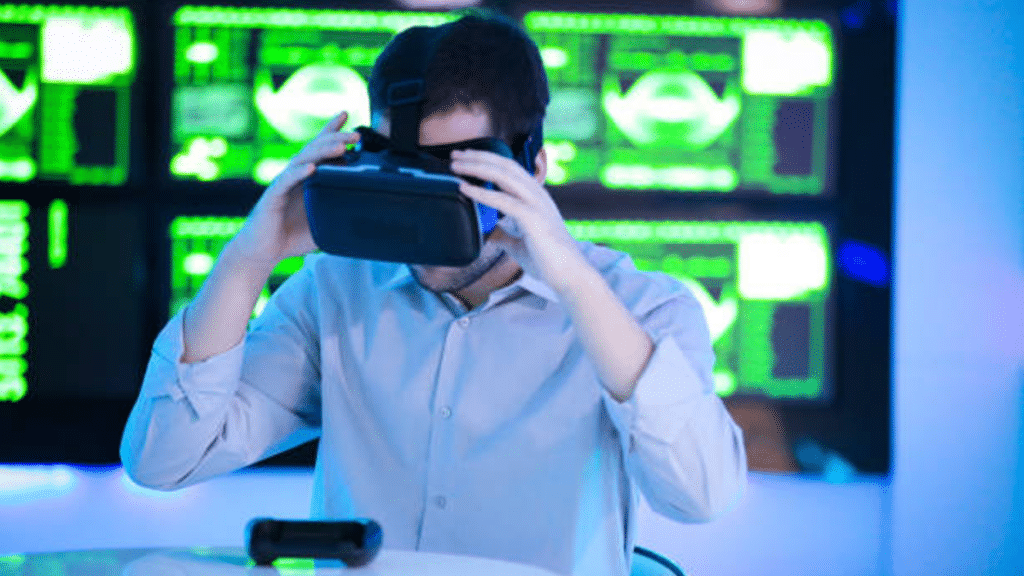Virtual Reality (VR) has revolutionized the world of gaming and entertainment, offering immersive experiences that were once the stuff of science fiction. This article delves into the transformative impact of VR on these industries, examining its advancements, benefits, and potential future developments.
The Evolution of Virtual Reality
Virtual Reality has come a long way since its inception. Early attempts at creating immersive experiences date back to the mid-20th century, but it wasn’t until the late 20th and early 21st centuries that technology advanced sufficiently to make VR a viable medium. The introduction of more sophisticated hardware, such as the Oculus Rift, HTC Vive, and PlayStation VR, marked a turning point in VR development, making high-quality virtual experiences accessible to the average consumer.
Technological Advancements
The progress in VR technology is a testament to human ingenuity. Modern VR systems boast high-resolution displays, precise motion tracking, and responsive controls, which collectively create an almost lifelike experience. These advancements have not only enhanced the realism of VR environments but have also broadened their applicability in online spaceman demo and entertainment.
Impact on Gaming
Immersive Experiences
One of the most significant impacts of VR on gaming is the level of immersion it provides. Unlike traditional gaming, where players interact with a screen, VR places them inside the game world. This immersion allows for a deeper connection to the game, as players can look around, interact with objects, and experience the game environment as if they were physically present. This sensory engagement has redefined what it means to be a gamer, transforming passive observation into active participation.
New Genres and Gameplay Mechanics
The advent of VR has also led to the creation of new game genres and innovative gameplay mechanics. Games like “Beat Saber” and “Half-Life: Alyx” have demonstrated how VR can offer unique experiences that are impossible to replicate on conventional platforms. These games utilize VR’s motion controls and 360-degree environments to create novel interactions and challenges, pushing the boundaries of traditional game design.
Social and Multiplayer Experiences
VR has also transformed multiplayer gaming. Social VR platforms, such as VRChat and Rec Room, allow players to interact in virtual spaces, attend events, and participate in activities together. This social aspect of VR roulette online has created new communities and ways for players to connect, breaking down geographical barriers and fostering a sense of presence and togetherness.
Impact on Entertainment
Virtual Concerts and Events
Beyond gaming, VR has made significant inroads into the broader entertainment industry. Virtual concerts and events have become increasingly popular, especially in the wake of the COVID-19 pandemic. Artists and performers can host virtual shows in expansive, fantastical venues that would be impossible in the real world. Fans can attend these events from the comfort of their homes, enjoying a front-row experience that rivals, and sometimes surpasses, physical attendance.
Virtual Cinemas and Theaters
VR has also introduced new ways to experience movies and theater. Virtual cinemas allow users to watch films in a virtual movie theater, complete with other audience members and interactive features. Similarly, VR theater productions can transport viewers to elaborate sets and stages, offering a level of immersion and engagement that traditional mediums cannot match. These experiences highlight VR’s potential to redefine how we consume visual and performing arts.
Challenges and Future Prospects
Technical and Accessibility Challenges
Despite its many benefits, VR is not without its challenges. Technical limitations, such as motion sickness and the need for high-performance hardware, can hinder the VR experience for some users. Additionally, the cost of VR equipment remains a barrier to widespread adoption, although prices have been decreasing as technology advances.
Content Development
The development of high-quality VR content is another critical challenge. Creating immersive VR experiences requires significant resources and expertise, and the current library of VR content is relatively limited compared to traditional media. However, as more developers and creators enter the VR space, the diversity and quality of available content are expected to improve.
Conclusion
Virtual Reality has already had a transformative impact on gaming and entertainment, offering immersive experiences that were previously unimaginable. From creating new game genres and social experiences to revolutionizing how we attend concerts and watch movies, VR is reshaping the way we engage with digital content. While challenges remain, the future of VR is bright, with ongoing advancements promising even more exciting developments in the years to come. As technology continues to evolve, VR is set to become an integral part of our entertainment landscape, providing new and innovative ways to experience the world around us.
